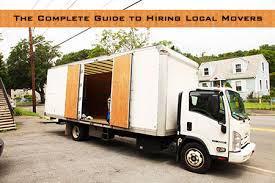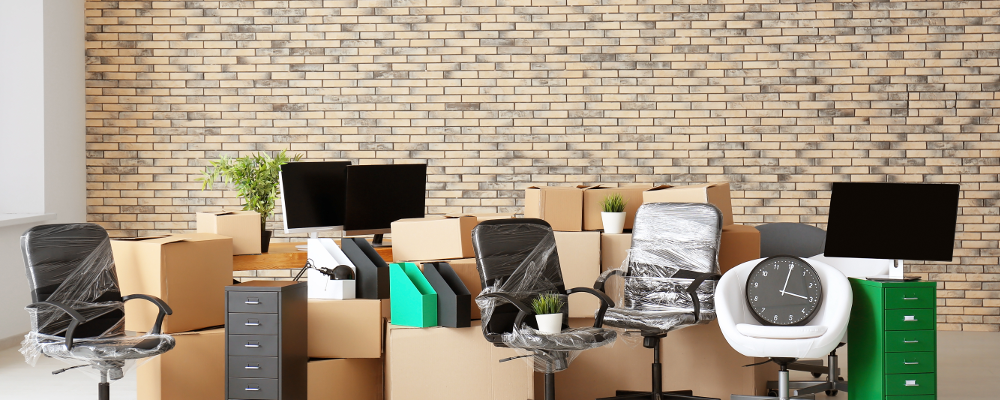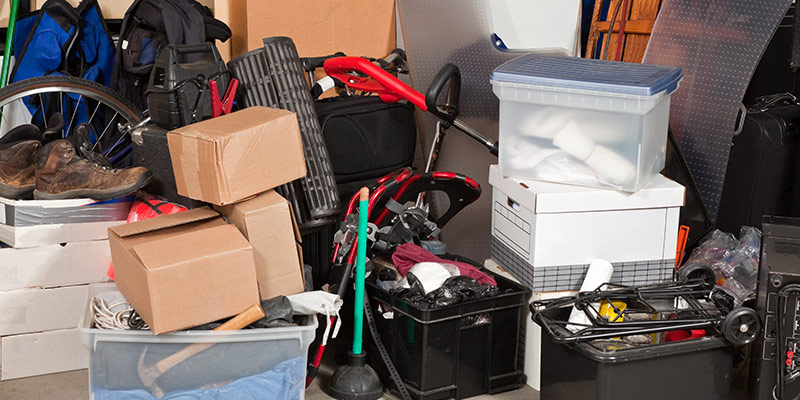Local Moving Guide
One of the most difficult parts of any business is often just starting with the procedure. When you start to plan your move, you would need to start by getting rid of procrastination and also by staying organized during a really chaotic time. You will be organized and be stress-free during the move when you know the following guide
What to do before you start packing:
1) First things first, make a checklist
As soon as you get a confirmation that you are moving, you should get a moving checklist. When you start with the process, you will come across a lot of tasks. So, if you do not know how to streamline the process, you will just end up stuck in the end. Make a checklist with a probable timeline for all your tasks. For instance, make a list of categories like kitchen utilities, books, etc and set a probable timeline to get started on them.
2) Create a record of your inventory
Before you start to figure out what you need to pack first, we recommend that you make an entire inventory. This will help you understand what are your belongings and how much stuff do you own. You can create a simple spreadsheet or also make a list with the simple pen and paper method. For instance, you can start with how many bedsheets do you own or how much expensive crockery is there to pack. Once you know of your inventory, you would be able to pack all your stuff without much hassle.
3) Get rid of your stuff
Honestly, this is the ideal time for you to figure out how much stuff you own and how much you need to get rid of. Once you realize that you have plenty of stuff in life, you would be able to categorize it in ‘leave behind’ and ‘take with you’ categories. Before you start packing, throw out stuff that you do not need. For instance, your old and tattered clothing would have no place here. You can also recycle books that you do not need. Once this list is made, you can pack stuff with a really fresh mind.
4) Find the right moving company
Now, before we actually get to what you should pack first; let’s start by understanding what you need to pack before moving. Your company is definitely one of the most important categories of your packing and moving, so do not take this lightly. Take a proper estimate and approach two to three companies to get a better-negotiated deal. In order to ensure the most accurate estimate, you wouldn’t want half-packed boxes scattered throughout your home.
What to pack first while moving:
1) Clear off your storage
In our experience, the first things to go should be the ones that are hidden. For example, dig into the garage or get into the walk-in closet to figure what’s been hiding there. These items are not only easy to pack first but you would not require them in your daily lives. So, you can start ticking those off your inventory list.
2) Pack all of your out of season clothes
Out of season clothes are quite easy to pack as well because most likely they may already be inboxes. It is best to keep moving them while making a local move and shuttling between your new house and old house. You may not even need to use these clothes for a lot of months so its best to go ahead and keep them off.
3) China and the crockery should also be packed
We can all agree on one thing. It is highly unlikely that you’d be hosting dinner parties while making a move. This means, your crockery or fancy china can all be backed and kept on the side. Since these are fragile items, you would need to pack them really carefully. Ensure that all the boxes are labeled properly and are not fragile at all. While you are packing all this, remember you may want to even go ahead and pack the other dishes which you rarely ever use. Even your daily utensils can be packed off and you can use disposable items for eating.
4) Picture frames, wall hangings, and artwork
As you move towards packing up your house, you can start with wall hangings. They are tricky to pack and definitely one of the first things you must pack. In all probability, the only use of artwork for you is to decorate your home. So, pack all of the stuff which is going to find a place in your new house. Do not wait for the d-day, otherwise fragile stuff like this is surely going to be broken eventually. Hence, try packing it properly with the perfect coating of blankets and t-shirts so they stay protected.
5) Pack all of your extra linens and towels separately
Another thing that takes a lot of stuff is linens and towels as well. So we recommend that you keep a set that you want to dispose off and use it in your current house till it wears out. Then simply take required sets of linens and towels in an overnight bag. Rest of the linens and towels can be used to pack all of your fragile stuff so that they do not end up breaking.
6) Books should also be packed on priority
If you are a bibliophile, then this is a super important note for you. Ensure that all of your books are packed in advance. You can keep a copy of what you are reading currently with you. However, it is crucial that you prepare yourself to part away from certain books too. Depending on the space you have in the new house, you can decide to clear off your books.

A Guide To Moving
From finding new schools, to setting up utilities, or just packing your home, moving can be stressful. This guide will help you along the way.
Moving involves a lot of variables coming together in order to have the experience be a successful one. This guide will provide you with tips and tricks for managing a move outside of simply hiring the best moving company to handle transporting your property. These additional steps can be just as important as the movers themselves. Take these pieces of tips and advice as a series of general guidelines to follow when moving.
How to Pack for the Move
Packing is half the battle when it comes to moving. Knowing how to do it right can save you a huge amount of grief, make life easier for your movers, save you money, and ultimately, make sure your belongings get to their destination intact. Use these tips to help you have more success with your packing:
Use proper boxes. Weak and/or repurposed boxes can fail, leaving your belongings scattered all over the streets. Make sure the box is strong enough to securely hold the weight of the items you’re going to place inside of it. Most moving companies will have high quality moving boxes available for purchase.
Ensure all breakable items are properly wrapped and secured. Use bubble wrap and/or packing paper to insulate each item from others in the box so that breakable items are not banging against each other.
Pack items tightly together so they can’t bang and move around in the package.
Where to Get Boxes For Packing Your Home Items
Getting proper boxes is vital in order to pack up your things for the big day. First of all, you always have the option of purchasing boxes from the moving company. The upside here is that you know you’re getting a high quality product that can hold up to the stresses of a move.
If you don’t want to get professional-grade moving boxes, there are many other places you can ask for boxes, including:
Grocery stores
Liquor stores
Office supply stores
Advertising requesting boxes on buy-and-sell websites
Facebook groups – many communities have groups where members can chat about various community issues. This is a great place to look for moving boxes, as new members will often have many that they need to get rid of anyway.
Setting Up Utilities Before Moving
When moving, always remember to attend to the utilities on both ends of the move. When leaving a home, some utility companies have cut-off dates that you must give them notice by, otherwise you could find yourself paying for another full month of utilities when you aren’t even living on the property. By the same token, the utility companies at your new location may need advance notice in order to ensure that your services are connected when you arrive.
Utilities you should look into (on both ends of the move) include:
Water
Sewer
Power
Heat
Cable
Internet
Telephone
Security system monitoring
Know The School Systems
From elementary to high schools, if you’re moving with a family to a new city, or even to a new school district in your current city, then schools are going to be an important part of your move. Be sure to research schools in your new neighborhood in advance. Learn how registration, bussing and other programs work. If you have options in regards to schools in the area, set up meetings and learn which option is going to be the best fit for your family.

Moving Tips and Checklists
6-8 Weeks Before Moving:
Organization is the key for a smooth move and this is the time to start getting the details of your move.
This is the time to decide what items you wish to transport to your new home. If you decide to dispose of items that you don’t need you should either donate them to a charity or consider having a garage sale. Contact a local charity or pick a date at least two weeks before moving date for the garage sale. Advertise the garage sale locally. Team up with your neighbors who want to sell some of their old belongings, and plan a large neighborhood “sale”.
Start collecting suitable moving and packing supplies if you plan to do your own packing or partial packing. You can purchase all these materials from your agent or a moving supply company. All boxes that you purchase from us or a moving supply company are specially designed for the moving industry to prevent any damages to your belongings. Getting boxes from other sources may create some difficulties when packed in the van. These boxes may be unusual sizes and they may not be strong enough to prevent damages to items packed inside.
Think about your new home layout and start thinking about where you’ll place the furniture. Create a floor plan of your new home that will prevent the stress of making decisions when your furniture arrives at your new home.
Get familiar with your new community. Request information on schools, community programs, parks and recreation from the local Chamber of Commerce.
All travel arrangements (hotel, flights, car rental, etc.) for your family should be made at this time. Try to keep your plan flexible as possible to accommodate any schedule changes or delays.
Finalize all real estate and rental needs.
Contact your insurance agent to transfer medical, property, fire and auto insurance.
All medical and dental records should be placed in a safe and accessible place. Be sure to include prescription, vaccination records and eyeglass specifications.
Plan on taking all important documents, such as wills, stock certificates, and other one of a kind items (jewelry, coin collection, photos etc.).
4-5 Weeks before moving
Contact the Post Office for the Change of Address form to tell of your move. give your new address to:
Friends and Family
Post Office
Utility Companies
Telephone Company
Trash Company
Cable Company
Water Company
Electricity Company
Internet Provider
Insurance Companies
Banks and Financial Institutions
Checking
Savings
Loans
Creditors
Local Government agencies, Federal agencies, the IRS
Health Providers
Doctors
Dentist
Veterinarian
Pharmacy
Schools
Subscriptions
Magazines
Book Club
Record Club
Newspapers
Travel/Auto Club
Church
It is the time to take a look at what you own, and decide what must go and what can be left behind. All items such as old books, magazines, broken items, old toys can be left behind. Remember-adding more weight to your shipment costs more money.
Organize your move by deciding and making lists of what items you will not transport, what items your van line agent will move and what items you will move yourself.
Make a decision if the items not going that will be sold at a garage sale, picked by a charity or trash it.
Make a decision on who will do most of the packing or all the packing. It is a good idea that you let the van line agent do most of the packing. The van line agents know the best methods for keeping items safe; that’s what they do for a living.
Get your kids involved with the moving process. Let your kids do some packing and let them suggest a layout for their new room. Make it fun and exciting for them to move.
3 Weeks before moving
Notify your agent if there are any changes in the dates of your move. If you will need any additional accessorial service such as piano moving, packing and unpacking, storage you should inform the van line agent for pricing information. Also inform the van line agent if you add or subtract items from your planned shipment.
Decide how much packing your will handle yourself. You should inform your agent of any items that you decided for him/her to pack.
Whether you move your car with the us or a car carrier, you should make your final reservation for a car pick up at this time.
Consider giving your plants to friends or a charity if you are moving from one state to another. Some state laws prohibit the moving of houseplants.
Make transportation arrangements for your pets. Take your pets to your veterinarian to ensure proper up to date health certificates and rabies inoculations. Some states will require these documents.
You will need to carry all valuable jewelry with you. If you have any valuables around the house, be sure to collect them before leaving.
Return any borrowed items such as library books. Also collect all items that are being repaired stored or cleaned (clothing, furs, shoes etc.).
2 Weeks before moving
Transfer all prescriptions to a drugstore in your new city. Call your bank to find out how to transfer your accounts. Clear all your safety deposits boxes.
Disassemble and disconnect your computer system before your move. Back up all your computer files on a disk. Consider taking all back up files disks with you in the car. Exposure to extreme temperatures can damage your software.
Make final packing decisions. Clean and clear your home including closets, basement and attics and the items that you will take.
Dispose of items that represent a hazard and are not allowed to be shipped.
Tape and seal all cleaning fluids that are non-toxic, non-flammable in plastic bags.
Drain your lawn mower, snow blower, power tools of all the oil and gasoline to ensure safe transportation.
Schedule appliance disconnection and preparation with a service provider.
If you need to store anything call your van line agent about storage options available.
Inform gas, electric, cable, and telephone services of your move. Arrange to have them disconnected from your present home the day after your scheduled moving day. Sign up for services at your new address and connect them on your moving in day.
Have your automobile serviced if your travel is by car.
1 Week before moving
Make sure to mark which items you’ll take yourself, so the movers won’t take them or have any questions.
Make sure you haven’t overlooked anything in the house.
Mark your boxes to be shipped with “Fragile”, “Do Not Load”, “Load Last” stickers.
Empty, defrost and clean your refrigerator, freezer and clean your stove, all at least 24 hours before moving to let them air out. Try using baking soda to get rid of any odors.
Prepare items you will need while your goods are in transit. Pack your suitcases and confirm travel arrangements for you and your family. Try to keep plans as flexible as possible in the event of unexpected delay or schedule change.
Make sure your agent knows the address and phone number your new home. You should also provide an address and phone number of where you can be reached until you will get to your new home.
Arrange for payment to your van line agent. Contact your van line agent to inquire about methods of payment accepted.
Inquire with your moving company or van line agents about protecting your goods.
1 Day before moving day
Pack a box of things you’ll need as soon as you arrive at your new home. (This might include non-aerosol cleaning supplies, disposable plates and cups, light tools, snacks, bathroom items and trash bags.)
Take this box with you or have the driver load it last and unload first. This is usually the day packing is done.
Make sure all packing services have been performed before you sign for them.
Defrost, thoroughly clean and dry refrigerator.
Moving out day
Be on hand when the driver arrives and throughout the loading process. (If you won’t be there, make sure someone will be there to direct the movers. Make sure the driver has in writing the name and phone number of that person.)
Accompany the driver during inventory. Check on the condition of your goods as they are loaded.
Make a final tour of your home. See that nothing is overlooked.
Sign the bill of lading and make sure your new address and phone number are correct.
Lock all windows and doors, and turn off all switches.
Moving in day
Arrive at your home a day ahead of time, if possible, to make sure utilities are connected and to plan placement of major items in your home.
Be on hand to pay the driver with cash, traveler’s check, certified check or money order prior to your goods being unloaded.
MOVING CHECKLIST
Get prepared for your next move with our handy moving checklist! Using a simple timeline, this moving to-do list will help you focus on specific areas of your moving and packing tasks to keep you on track and ensure you’re ready come move day. Best of all, it’s broken down into easy-to-follow sections so you can tackle the pre-move process piece by piece as you work your way through the entire checklist.
A MONTH BEFORE THE MOVE
Reserve a moving company for your move as soon as you know you are moving. If you need packing assistance
Start to clean out closets, the garage, and attic.
Host a garage sale or donate your unwanted things to charity.
Arrange to transfer school records.
Get change of address cards from your local post office or change your address online.
Notify magazines, charge accounts, insurance companies, clubs, and all other organizations of your change of address.
ONE TO TWO WEEKS BEFORE THE MOVE
Make a “survival closet” of things you will need for the final clean-up and include snacks for the last day.
If you decide to pack yourself, label all moving boxes as you pack. Write the destination room on the top and sides of each moving box to ensure it gets to the right place in your new home. If you’re pressed for time, or overwhelmed with packing
Schedule disconnects for utilities such as gas, electric, water and the telephone. If you have a landline, do not disconnect it until after your move. Arrange for refunds that are due, and schedule connections for your new residence.
Cancel newspapers, Internet, cable TV, security, pest control, cleaning help, lawn maintenance, and any other services you receive.
THE WEEK OF THE MOVE
Mail in your change of address forms.
Clean the stove and finish up any last minute cleaning before move day.
Finish up packing and be sure all items are boxed and ready to go prior to the movers’ arrival.
Think about where your kids and pets will be during the time of the move, and if necessary, plan for them to go to a relative or friend’s house during that time.
Ensure you have transportation to your new home for yourself, family, and pets.
THE DAY BEFORE THE MOVE
Ensure all breakables have been removed from dresser drawers and packed away properly.
Gather firearms or ammunition to be moved yourself, as these items cannot be transported
Clean the refrigerator, then defrost and dry.
Get enough cash to tide you over. Cash comes in handy if you need to order pizza during your move, or dinner in your new place!
Say goodbye to your neighbors!
DAY OF THE MOVE
Create a safe path for the movers to navigate by clearing your driveway of objects, snow, or ice.
Pack your suitcase and day of the move box with all necessary essentials to get you through the next few days in case you don’t get to unpacking right away.
Be sure you’re present when the movers arrive so you can walk them through the home and indicate what you need moved or anything in particular they should be aware of.
Once all belongings are loaded onto the moving truck, be sure to do one more walkthrough and lock all windows and outside doors, in addition to checking all lights and your thermostat are off before heading to your new home.
Moving Checklist
You may not be able to move mountains, but you can plan an organized move with a little help from this step-by-step timeline.
Two Months Before
Sort and purge.
Go through every room of your house and decide what you’d like to keep and what you can get rid of. Think about whether any items will require special packing or extra insurance coverage.
Research.
Start investigating moving company options. Do not rely on a quote over the phone; request an on-site estimate. Get an estimate in writing from each company, and make sure it has a USDOT (U.S. Department of Transportation) number on it.
Create a moving binder.
Use this binder to keep track of everything—all your estimates, your receipts, and an inventory of all the items you’re moving.
Organize school records.
Go to your children’s school and arrange for their records to be transferred to their new school district.
Six Weeks Before
Order supplies.
Order boxes and other supplies such as tape, Bubble Wrap, and permanent markers. Don’t forget to order specialty containers, such as dish barrels or wardrobe boxes.
Use it or lose it.
Start using up things that you don’t want to move, like frozen or perishable foods and cleaning supplies.
Take measurements.
Check room dimensions at your new home, if possible, and make sure larger pieces of furniture will fit through the door.
One Month Before
Choose your mover and confirm the arrangements.
Select a company and get written confirmation of your moving date, costs, and other details.
Begin packing.
Start packing the things that you use most infrequently, such as the waffle iron and croquet set. While packing, note items of special value that might require additional insurance from your moving company. Make sure to declare, in writing, any items valued over $100 per pound, such as a computer.
Label.
Clearly label and number each box with its contents and the room it’s destined for. This will help you to keep an inventory of your belongings. Pack and label “essentials” boxes of items you’ll need right away.
Separate valuables.
Add items such as jewelry and important files to a safe box that you’ll personally transport to your new home. Make sure to put the mover’s estimate in this box. You’ll need it for reference on moving day.
Do a change of address.
Go to your local post office and fill out a change-of-address form, or do it online at usps.gov. But in case there are stragglers, it’s always wise to ask a close neighbor to look out for mail after you’ve moved. Check in with him or her two weeks after the move, and again two weeks after that.
Notify important parties.
Alert the following of your move: banks, brokerage firms, your employer’s human resources department, magazine and newspapers you subscribe to, and credit card, insurance, and utility companies.
Forward medical records.
Arrange for medical records to be sent to any new health-care providers or obtain copies of them yourself. Ask for referrals.
Two Weeks Before
Arrange to be off from work on moving day.
Notify your office that you plan to supervise the move and therefore need the day off.
Tune up.
Take your car to a garage, and ask the mechanic to consider what services might be needed if you’re moving to a new climate.
Clean out your safe-deposit box.
If you’ll be changing banks, remove the contents of your safe-deposit box and put them in the safe box that you’ll take with you on moving day.
Contact the moving company.
Reconfirm the arrangements.




